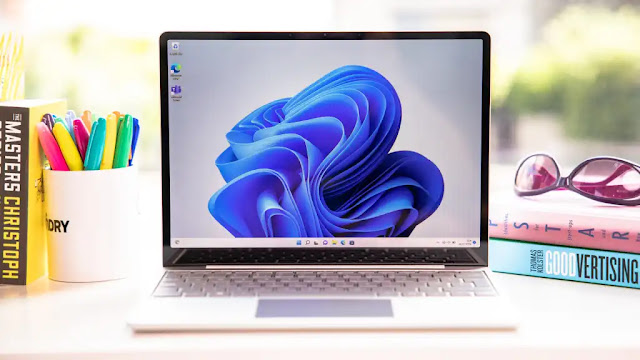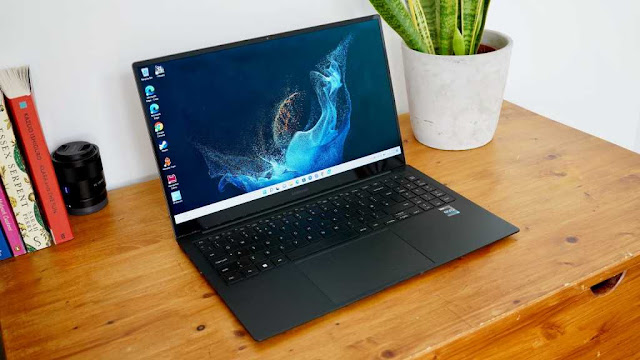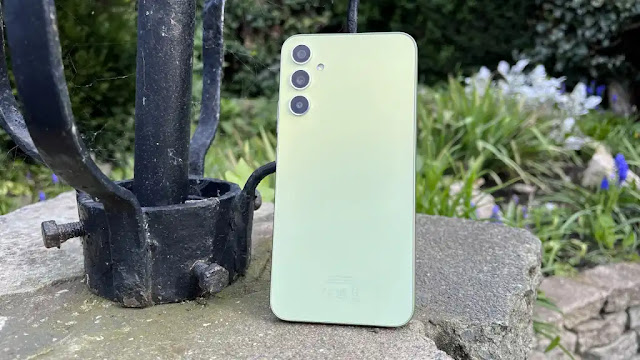Your guide to the latest and best gaming laptops of 2020. Check out our latest reviews and buying advice on the top gaming laptops for this year.
What Is The Best Gaming Laptop 2020?
Gaming laptops are getting thinner, lighter and more powerful all the time. Sometimes they even offer half decent battery life. There are countless to choose from but we review and rank the best ones out there and explain what to look out for before you buy.
Luckily for you, we've reviewed and ranked lots of different models for you to choose from at a range of different prices and specs.
In 2020, laptops are arriving with specs such as 10th-gen Intel processors, Nvidia GeForce RTX Super graphics cards or the latest from the AMD Ryzen series. We're always testing and adding new models so keep an eye out.
Best Gaming Laptops 2020
1. Razer Blade Pro 17
- From $2,499
The Razer Blade Pro 17 is an incredible bit of kit, offering a refined design with tiny 6mm bezels, a lightweight form factor and a chassis that's closer in size to a standard 15in laptop than a 17.3in laptop while still offering desktop-level gaming performance.
You'll get the Full HD 144Hz display, Core i7 processor, 16GB of RAM and 512GB SSD no matter the variant you opt for - the only difference is the GPU, varying from the entry-level RTX 2060 to the RTX 2080 Max-Q. It's great that the features are near-identical across all variants, making the decision much easier for consumers.
While the RTX 2060 variant we reviewed offered average performance from an entry-level machine, the Max-Q cards should really make a difference to your gaming experience - if you can afford them.
We'd like a brighter screen and a better keyboard but those are our two main quibbles.
2. Gigabyte Aero 15X (2018)
The Gigabyte Aero 15X is a fantastic gaming laptop for those who want something they can carry around the house easily or take around to use as a day-to-day laptop too.
Its 4K screen is fantastic, build quality is good as it has perfect performance for 1080p gaming. It’ll even handle some titles at 4K resolution.
Our one significant disappointment is that battery life is nowhere near as long as last year’s model according to our tests.
3. Gigabyte Aero 15 OLED (2020)
This is an amazingly sleek and portable, yet powerful laptop which will suit those looking for a single machine to handle complex work tasks such as video editing and then,once work is over, some of the latest AAA games. That's if you're ok with a refresh rate of 60Hz.
You can drop down to a non-OLED, Full HD display with a GTX 1660 Ti but we'd recommend going for an OLED model if you can afford it - especially if you need the performance of this stunning display.
4. Alienware m15
If you don't mind paying for portability, the Alienware m15 is one of the best light(er) gaming laptops around right now. The slimmer, lighter design hasn't brought any serious compromises on power or performance, and even battery life is surprisingly strong.
At a third lighter than the regular Alienware 15 - and smaller in every dimension - this is an impressively slimmed down device, but it still packs in a Core i7 and up to 32GB of RAM with a GTX 1070. Not too shabby - and it doesn't hurt that the restrained design is among the industry's best, beaten only by the slick Razer Blade 15.
It's not cheap, but then no gaming laptop is - especially in a slim form factor. The only real downsides here are the outsized top bezel - which rival manufacturers have managed to avoid - and the fact that it runs hot - which other manufacturers haven't really been able to avoid either.
5. Razer Blade 15 (2019)
The Razer Blade 15 is still one of the best gaming laptops around but gets a slightly lower score than last year's model as not a huge amount has changed.
An RTX 2070 graphics card and a 240Hz screen are not to be sniffed at but the processor doesn't reach full potential due to thottling and the keyboard won't suit the more serious gamers.
It's still an expensive laptop, too, so doesn't provide the best value, even if it does look the part.
6. XMG Fusion 15
It might not be as flashy compared to rivals but if you don't really buy into the ostentatious nature of gaming devices then the XMG's more plain design will appeal.
The big advantage here is the amount of performance on offer thanks to parts like an RTX 2070 for less money than the big brands on the market. It also has good battery life and a mechanical keyboard.
It's one of the best value gaming laptops available, as long as you're ok with the the screen and speakers being lower grade than rivals.
7. Acer Predator Helios 300 (2019)
The Helios 300 isn't the most exciting gaming laptop around, but it's still impressive. Largely as this is an affordable gaming laptop with a nice balance of design and performance.
You get a decent screen with a quick response time and 144Hz refresh rate. The Nvidia GeForce GTX 1660 Ti is capable of smooth Full HD gaming into triple figure frame rates, although the Core i5 and 8GB of RAM are nothing to write home about.
Build quality is reasonable and there are good range of ports, too. The bottom line is you're getting a solid gaming laptop for an affordable price.
8. Asus TUF Gaming FX505DY
Gaming laptops that come at an affordable price don't have to be rubbish. Asus has done a good job of proving this is possible with the TUF Gaming FX505.
Achieving a cheaper price point means sacrificing a lot of the usual flare you find on a gaming laptop such as fancy lighting and metal build. However, this is still an attractive laptop that is portable.
What's most important is that you get decent specs and performance with a nice Full HD screen.
9. Asus ROG Zephyrus GX501
If you're looking for the most portable gaming laptop possible without compromising on performance then the Asus ROG Zephyrus GX501 is one of the best we've tested to date.
This thing is only just over 2kg and under 20mm, yet has the power of an 8th-gen Core i7 and an Nvidia GTX 1080 in the Max Q edition.
It means desktop level performance is a stylish laptop that can go anywhere with you. You'll just need a power outlet and a bank balance that can handle the price.
10. Alienware Area 51m (2019)
The Alienware Area 51m is a tricky one to place in the gaming laptop market.
On the one hand, this has performance that blows rivals away thanks to its desktop components and we like the updated design making it the ultimate desktop replacement.
However, you've got to be able to afford one and buy into the sheer bulk of it along with the two power bricks. It not perfect either, as we'd like more ports and expect a better keyboard. You also want 4K which is not available as an option.
If you're not so keen on the size and price, then there are plenty of other gaming laptops that are more well-rounded. They can still offer decent performance and are much more portable, plus easier on the wallet.
Your Buying Guide For The Best Gaming Laptops In 2020
There are plenty of things to consider when on the market for a respectable gaming laptop.
You need a capable CPU, a graphics chip that is powerful enough to deliver your games as the developers intended them, enough system RAM to keep applications stored in memory, high-capacity and fast storage drives to hold games and other files, a sizeable and decent-resolution screen to view the action on, and a good chassis to bear all these components.
With that in mind, we've broken down our buying advice by component to help you figure out what to look for. Oh, and if you're open to buying a powerful laptop that's not been designed specifically for gaming, check out our guide to the best laptops of 2020.
Which Processor Is Best?
From Intel, the latest generation of Core processor is a good idea for the best performance and longevity. However, opting for the previous year's model can save you a lot of money if you find a laptop reduced in price due to it's age.
It's not old, it's just not the latest model so tends to get discounted to clear stock.
As ever, our benchmark results provided within our reviews will tell you how quick a particular laptop is at various tasks.
Which Graphics Card Should I Choose?
The graphics card is arguably the most important component of a gaming laptop, as it does most of the work when you're playing a game. Unlike with a desktop PC, you can't usually upgrade the graphics card in a laptop, so it pays to get the best you can afford to begin with.
Laptops with Nvidia GTX graphics chips are are the older models but still provide decent performance. You'll see the 'Max Q design' versions of these cards largely as they are created to fit inside the chassis of a laptop.
If you want the latest tech then look for GeForce RTX cards for improved performance along with features like ray tracing. They're just more expensive, of course.
Also bear in mind that AMD are very much back in the game these days and have plenty of Ryzen chips and Radeon GPUs that are top quality.
What Screen Do I Need?
Laptop screens have improved in recent years, with screen resolutions now settling at full-HD (1920x1080), and using better technology than the basic TN type found on cheap portables. Look out for IPS panels, which offer wide and consistent viewing from all angles, better contrast ratio and wider colour gamuts.
Don’t be misled by boasts about screen brightness - contrast ratio, especially at lower brightness settings, is far more important than dazzling your eyes with 300cd/m2 figures.
It’s also easier to find screens now with more practical anti-glare finishes, reversing the trend of high-gloss reflective panels that were once unavoidable from most brands.
And you can usually ignore the trend for greater-than-HD resolution, since many graphics processors struggle with UHD (4K) screens. For most gamers, FHD (1920 x 1080) or QHD (2560 x 1440) is a happy compromise between glorious on-screen detail and playable framerates.
If you want a smoother experience at 1080p or 1440p, opt for a display with a higher refresh rate (120- or 144Hz). You can even get 240Hz on the Razer Blade 15.
How Much Storage Do I Need?
For storage, a solid-state drive will greatly improve the user experience when it comes to booting a PC, launching programs and opening and saving files. It won’t make your games run faster, although it may reduce any loading times between levels, and they should start up faster.
Nevertheless, an SSD is always recommended, with the option of a second capacious hard disk to store your games. Remember that modern games take up a lot of space so get as much storage as you can.
Do Gaming Laptops Have Better Sound?
Some gamers like to use headphones or headsets, especially in multiplayer games, but if you don’t anticipate spending your time donning ear defenders you should still find that modern gaming laptops run quieter today. Which means you may get to appreciate the built-in stereo speakers.
Some sport brand badges to suggest bespoke audio systems - we’ve seen B&O, Dynaudio, Harman, Klipsch and Onkyo put their names to tinny laptop speakers - although in our experience, these are more window dressing, with some of the best-sounding laptops bearing no fancy badges.
Battery Life And Other Considerations
Battery life is perhaps less a concern for a desktop-replacement type of gaming laptop, although that’s more a historical resignation caused by the long-standing difficulty in combining fast graphics with svelte and mains-dodging laptops.
As we discovered with some models in the following group at least, you can have a powerful gaming machine and stunning battery life, even if the unplugged runtime will dwindle more rapidly once low-power integrated graphics have switched over to hungrier gaming graphics.
Don't forget about the warranty. You're spending a lot of money, so it's important to make sure the manufacturer offers a good, long warranty. Ideally, this would cover the cost of shipping the laptop back to base for repair and then being returned to you, so always pay attention to the small print.
👉👇You May Also Like👇👌
View the original article here
















%20Review.webp)

%20Review.webp)


%20Review.webp)
%20Review.webp)



0 comments:
Post a Comment